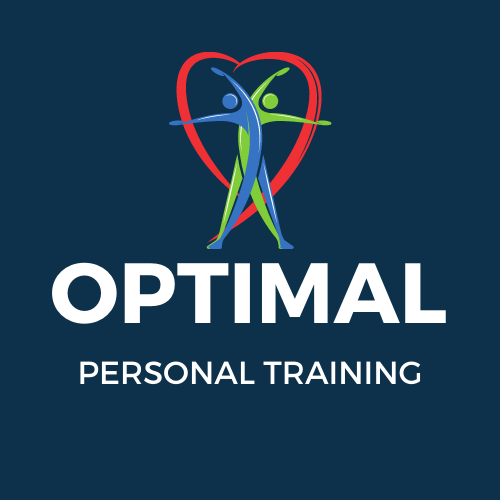Five Key Strategies for Keeping Your New Year’s Resolution

GIVE THE GIFT THAT KEEPS ON GIVING: FITNESS
December 16, 2020
The Power of Winter Golf Fitness Conditioning to Improve Your Game
January 25, 2021Five Key Strategies for Keeping Your New Year’s Resolution
It Takes More than Intention
Why do so many of us make New Year’s Resolutions each year if only a small percentage manage to keep them? Well, there’s an excellent reason. We’re hard-wired to strive for continual self-improvement. Even when we’re engaging in unhealthy habits and self-sabotaging behaviors, at least some part of ourselves is aware of this, and we want to do better. Unfortunately, it takes more than wanting or even intending to attain one’s goal–which is precisely why so many people fail to keep their resolutions. What steps can you take to ensure that you’ll reach your goals successfully this year?
1. Believe it and See it.

First and foremost, it’s crucial that you believe your goals are attainable and that you can achieve them! Henry Ford said, “think you can, think you can’t; either way, you’ll be right.” If you begin by half-heartedly wondering if you can do it, you will have an uphill battle–and a short one at that. Don’t bite off more than you can chew. Your goal should be challenging but realistic enough to be believable. Then, after meeting it, set your sights on the next aspiration, and so on.
Devote some time, as well, to seeing yourself successfully and happily reaching your end goal and let that image seep in deeply. Practicing visualization is an extremely powerful tool that anyone can use to cultivate a firm belief in a successful outcome. Athletes, CEO’s, and people from all walks of life engage in this practice. Read more here on how to make visualization work for you.
2. Zone in on the “Why”
Let’s suppose you want to exercise more and boost your fitness level. New Year’s Fitness Resolutions top the list year after year, for a good reason. In addition to enhancing our outward appearance, becoming more fit will significantly contribute to our overall health. This is an excellent aspiration, of course, but it vaguely describes the “what.” It’s crucial, however, to become crystal clear on the “whys.”
 Why is it that you want to exercise more and boost your fitness level? Is your goal to lose 20 pounds to feel more comfortable in your body? Maybe you want to have the motivation and stamina to play tennis, hike, or run around with your kids or grandkids. Perhaps you’re focused on how to get your blood sugar, cholesterol, or arthritis pain under control. You may even aspire to live to 100 and enjoy a vibrant life until then.
Why is it that you want to exercise more and boost your fitness level? Is your goal to lose 20 pounds to feel more comfortable in your body? Maybe you want to have the motivation and stamina to play tennis, hike, or run around with your kids or grandkids. Perhaps you’re focused on how to get your blood sugar, cholesterol, or arthritis pain under control. You may even aspire to live to 100 and enjoy a vibrant life until then.
Focusing on the “why” of your resolution will give depth and meaning to it and will fortify your motivation to achieve it. This process is akin to renowned author Steven Covey’s Habit # 2 (Begin with the end in Mind) from his New York Times best-selling book, The 7 Habits of Highly Effective People.
3. Move from Black & White Thinking to Fifty Shades of Gray
If you have a perfectionistic streak, you probably know that it can hold you back from accomplishing things. Why? Because if you can’t do something as flawlessly as you wanted, you may view it as a failure and give up or, worse, not even try. But to err is human, to forgive divine–including yourself. Many of us spend too much time judging ourselves instead of examining our setbacks for the lessons they contain. At the same time, we tend to minimize our accomplishments.
Some of the world’s most successful people had numerous “failures” prior to their success. Take Steve Jobs, for instance: if he had given up on the journey and the lessons contained therein, we probably wouldn’t know his name or be using his iconic products! If you’re starting to fall off your resolution, stay the course and read on for additional tools you can utilize to remain on track.
4. Plan & Strategize
OK, so you’re clear on why you want to exercise more. But don’t rely solely on the excitement and resolve you have at the moment to carry you through when things get tough–because, as you know, these feelings will wane. It’s crucial to think through how you will manage potential pitfalls when they arise. Suppose you decide to get to the gym four evenings a week after work, but you work late often and then don’t have the will or energy to go at that time. The devil is in the details, so thinking through alternative strategies is critical to your success, or you risk quickly becoming discouraged and giving up.
 Consider using the powerful practice of journaling to keep yourself present, more self-aware, and focused on your goal. If you’ve just had an adverse reaction to this suggestion, know that journaling does not have to be an all-encompassing practice that requires hours of your time. It can take only a few minutes a day to record your successes and setbacks while reflecting on the circumstances that allowed for either.
Consider using the powerful practice of journaling to keep yourself present, more self-aware, and focused on your goal. If you’ve just had an adverse reaction to this suggestion, know that journaling does not have to be an all-encompassing practice that requires hours of your time. It can take only a few minutes a day to record your successes and setbacks while reflecting on the circumstances that allowed for either.
Award-winning New York Times contributor Charles Duhigg highlights journaling as a keystone habit in his bestselling book The Power of Habit. A keystone habit is small but extremely potent, creating a positive ripple effect on the rest of one’s life. In the book, he describes a weight loss study in which some participants kept a food journal. Unexpectedly, many of them began to see patterns they had been previously unaware of. They were then able to successfully strategize around them: pre-planning for the mid-morning snack attack, for instance. Others used the journals to plan their meals, which helped them comply with their intentions. Six months into the study, researchers found that the group who journaled had taken off twice as much weight as all the other participants.
Not surprisingly, Duhigg features exercise as another keystone habit that has been shown to create many other positive related and unrelated behaviors: eating healthier, feeling less stressed, having more patience, being more productive at work–and using one’s credit card less. (Yes, you read that correctly!) Clearly, it’s wise to acknowledge from the beginning that you will hit some bumps in the road–that’s pretty much a given. Having patience, perseverance, and the tools to help navigate those bumps is what’s truly important.
5. Get Support from an Accountability Partner 
We all know how easy it is to let go of a goal or dream when we have only ourselves to answer to, but we’re not islands unto ourselves. It is a sign of strength–not weakness–to reach out for support. Ideally, this would be offered by someone you trust who will share in your successes and setbacks, a person to whom you can be accountable, and who may offer their guidance and expertise to help you reach your goal. So why not set yourself up for success and get an accountability partner from the start?
Closing thoughts
Rarely does reaching one’s goals occur by way of a straight, perfectly forged path, and that’s OK and to be expected. Mistakes and setbacks should not be viewed as a sign that we’re not capable. They are opportunities to gain valuable insights that will help us grow, evolve, and overcome obstacles in the future.
 At Optimal Personal Training, our passion and expertise are to serve and partner with those who have health and fitness-related goals.
At Optimal Personal Training, our passion and expertise are to serve and partner with those who have health and fitness-related goals.
Please click here to learn more about how we can help you.
by Louise Napoli, ND, MS

